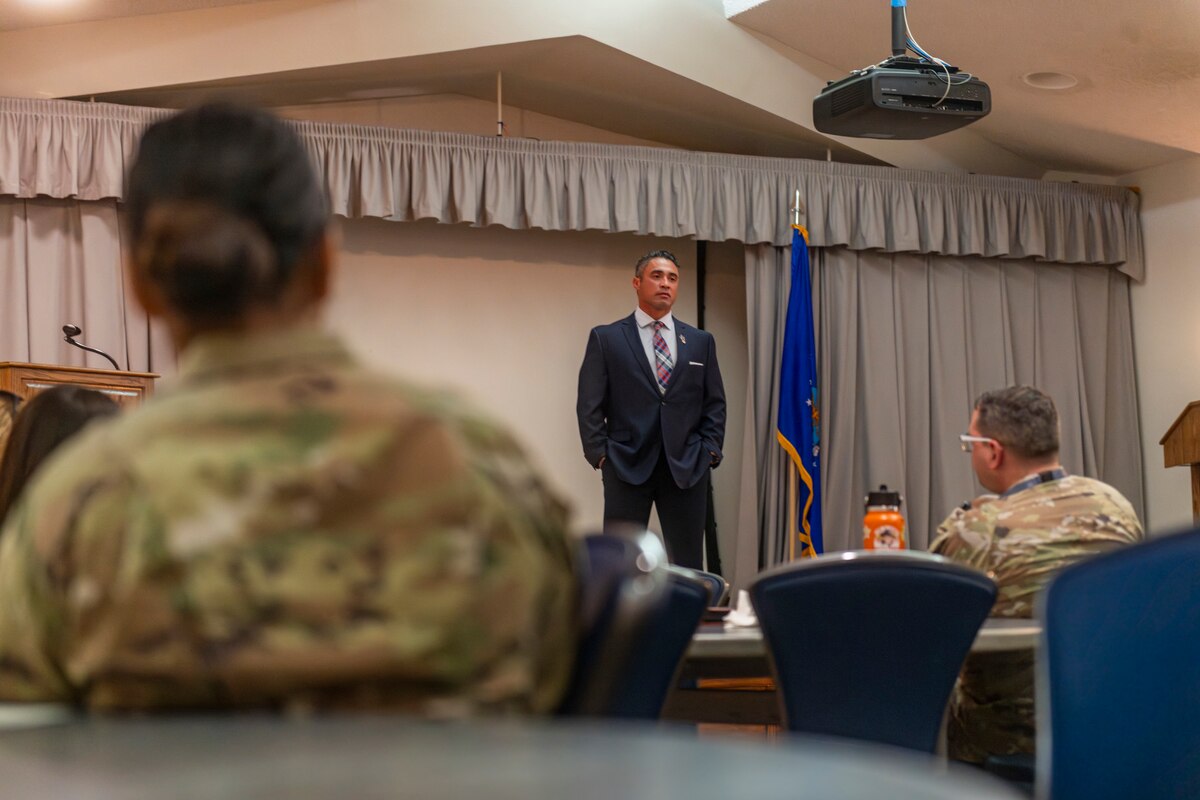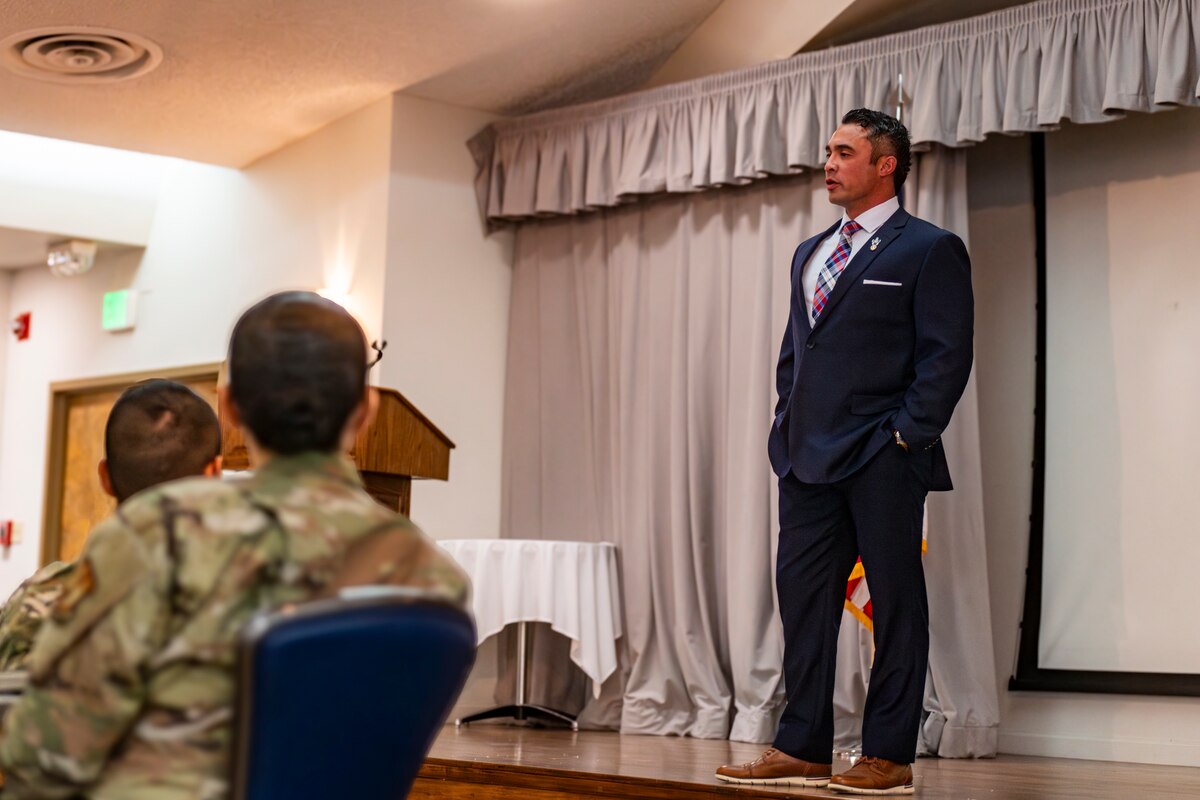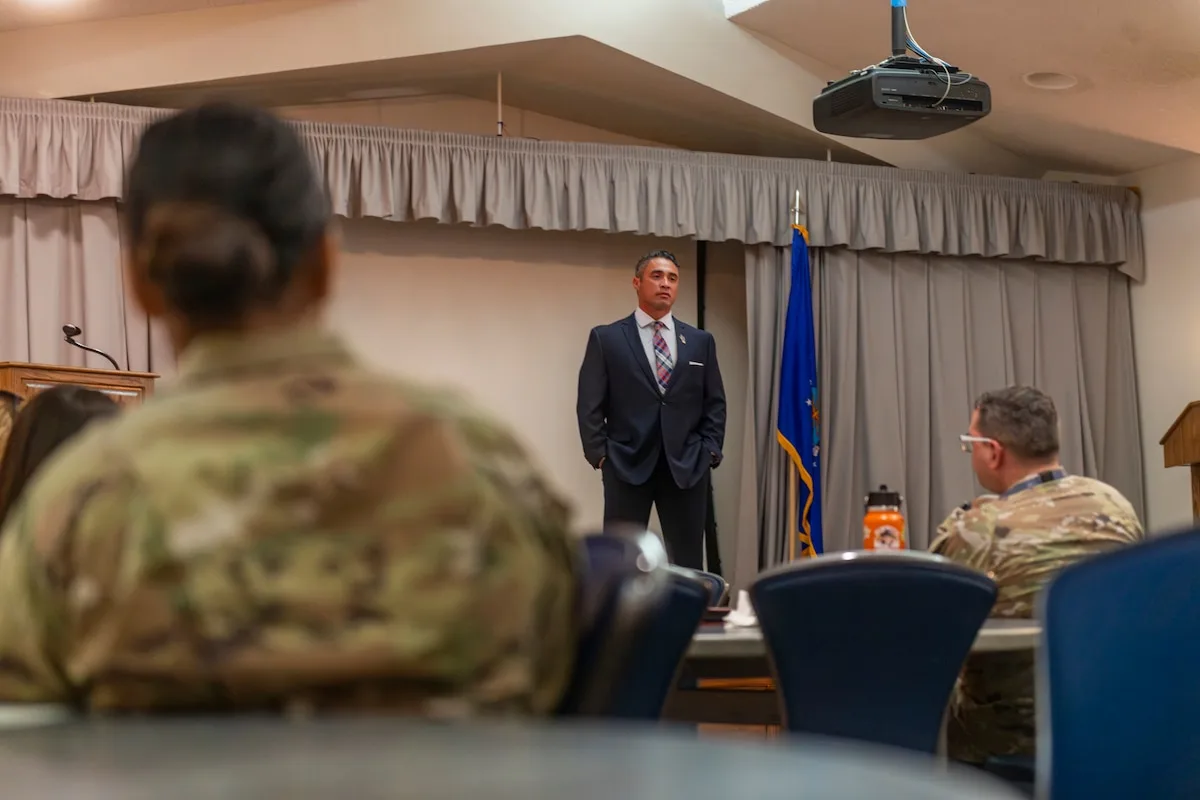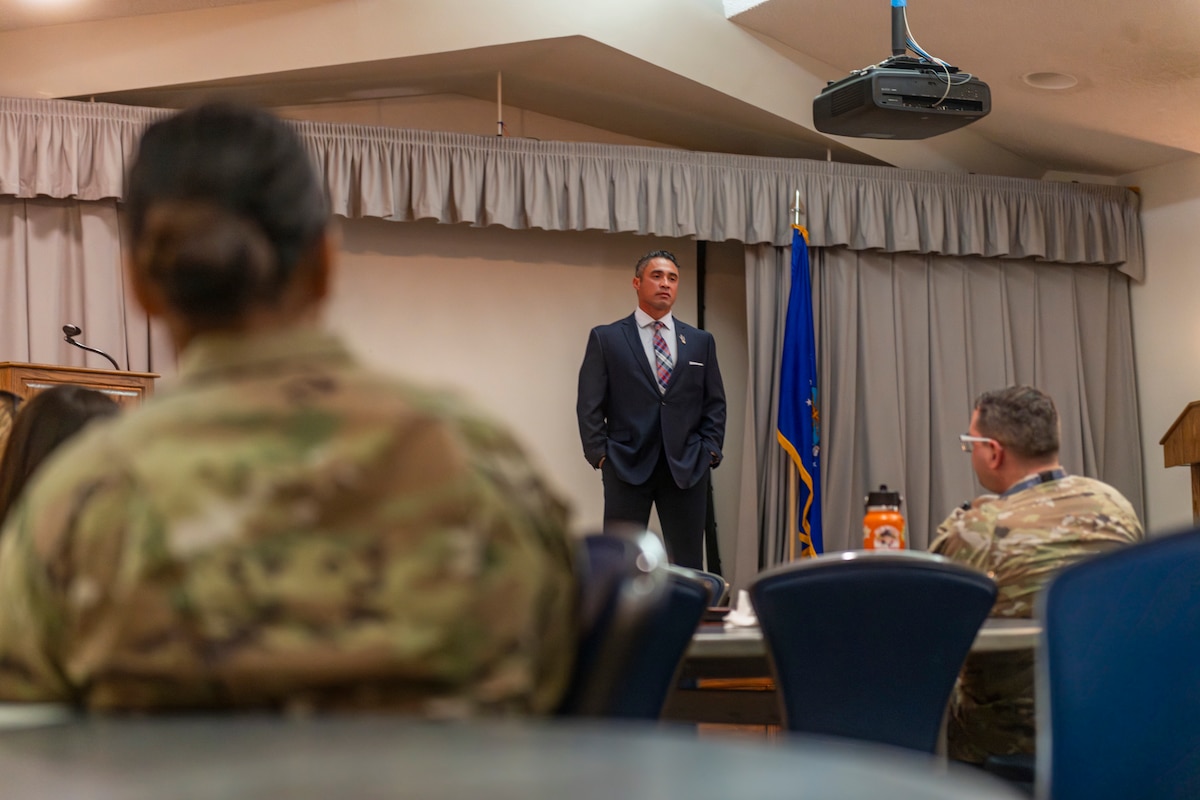Giancarlo Casem
The tragic death of a close teammate that struck on a kill-or-capture mission with British Special Air Services soldiers permanently etched itself on the psyche of Tech. Sgt. Christopher Ferrell one harrowing mid-December night in Afghanistan in 2009.
More than 15 years later a much more resilient Ferrell shared his experiences dealing with trauma, its aftermath and bouts with his mental health with Airmen at Edwards Air Force Base, California, Feb. 7.
“That night was different for me. I was always pretty calm when I was on these missions. This time, I was super at ease,” Ferrell recalled. “Everything was going smoothly so we started moving to the compounds, neutralizing target after target, IED after IED.”
Once at their intended target, Ferrell’s team of EOD specialists broke off into smaller teams. During a mis-timed explosion, enemy forces were alerted to their location. With enemy insurgents quickly approaching, Ferrell’s team devised an extrication plan while sweeping for IEDs in courtyard. In an instant, while his teammate Tony was navigating his way around a corner at the end of a corridor, an explosion rocked the entire area.
“Those next moments changed my entire life forever,” he said of that moment. “The entire space was covered in dust and smoke. I was covered in blood; I didn’t know who it belonged to, I didn’t know if it was mine.”
Ferrell then began to account for his teammates one-by-one through the fog of dust that had now enveloped the area around him. Through the din of combat, he managed to find two of his teammates. Then he found Tony.
“The way that I found him wasn’t how I hoped,” he said. “Tony was face-first, in the blast hole of the IED he had stepped on. I heard his last exhale. I was angry.”
Ferrell then recovered Tony’s remains and moved him to safer location while medical personnel worked on the rest of his team. Ferrell recalled that the rest of the night was a blur. After more fighting and more IEDs, he woke up from a daze at the medevac landing zone.
“Tony was on a ‘freedom bird’ home so his wife and kids could bury him,” Ferrell added. “That was the last time I saw Tony. He wasn’t the first person I lost, and he wasn’t the last, but that night pierced me so deeply I can never forget a single detail.”
Ferrell said that after Tony was buried, he compartmentalized the memory of that night. He felt had to keep going to finish the mission of clearing IEDs to keep allied forces safe.
Just two months later, he was once again deployed, this time as part of Operation Moshtarak in Afghanistan in February 2010. He was involved in another explosion just two months later that detonated 15 feet away while supporting British infantry troops, killing one and wounding three others. Ferrell and his team started providing trauma care to the injured and cleared the area for additional IEDs. He was eventually medically retired in 2017 from his traumatic brain injuries, nerve damage and fractured vertebrae in his spine from the explosions.
Ferrell said he enlisted into the Air Force following the 9/11 terrorist attacks and became an Explosive Ordnance Technician to have an immediate impact on the battlefield in a kinetic environment. That kinetic battlefield environment would take both a physical and mental toll on Ferrell.
“I’ve had to keep the memories of my friends alive, and the only way to do that is to talk about them, I see their faces when I close my eyes. Friends kept dying, I kept living,” he said. “Eventually, everyone has a breaking point. I did what all of us did: bury it in the deepest, darkest recesses in your brain.”
However, Ferrell learned that over the course of his deployment that the mind, like any weapon system that was overused and under-maintained, the weapon system eventually breaks.
Ferrell had witnessed the deaths of 26 close friends and teammates. Each loss etched deep scars on his psyche, yet he continued to push forward, suppressing the pain and focusing on the mission.
“Why weren’t we cleaning our best weapon system? I just kept going and going. We never took care of ourselves like we should have. We knew better, we didn’t care; the mission had to get done,” Ferrell explained.
It wasn’t until a trusted leader intervened, directing him to Walter Reed for treatment, that the full extent of his injuries—both physical and mental—were revealed. Brain damage, a result of the intense physical toll of his service, was discovered alongside emotional scars. Yet, it was through this process that he began to understand the importance of caring for his mental health.
However, after his military career came to an end, the weight of his trauma became overwhelming. Struggling with his identity and purpose, he faced multiple suicide attempts before seeking help. At that point Ferrell decided to redirect his focus.
“That was the hardest transition of my life because I had no purpose. I was a shell of who I used to be,” Ferrell said. “I wore a mask every day but what you can’t hide are your eyes. The eyes are the windows to your soul. It doesn’t matter how many times you smile or laugh, if you keep shouldering these burdens, it will show. I know, I’ve done it to myself over and over.”
“If I was going through this, who else is going through this?” Ferrell would eventually ask himself. That question prompted him to take action and find a new purpose: to use his experience to better educate other servicemembers on the importance of maintaining their mental health, which is a key to resiliency, he said.
Ferrell reminded the senior non-commissioned officers in attendance of the importance of their position and the impact they have on junior Airmen.
“If I can speak to a room of a thousand people and if it helps one person, then that’s all that matters because it has a ripple effect,” he said. “You’re not only helping that person, but you’re also helping their family and their friends for the remainder of their lives.”




